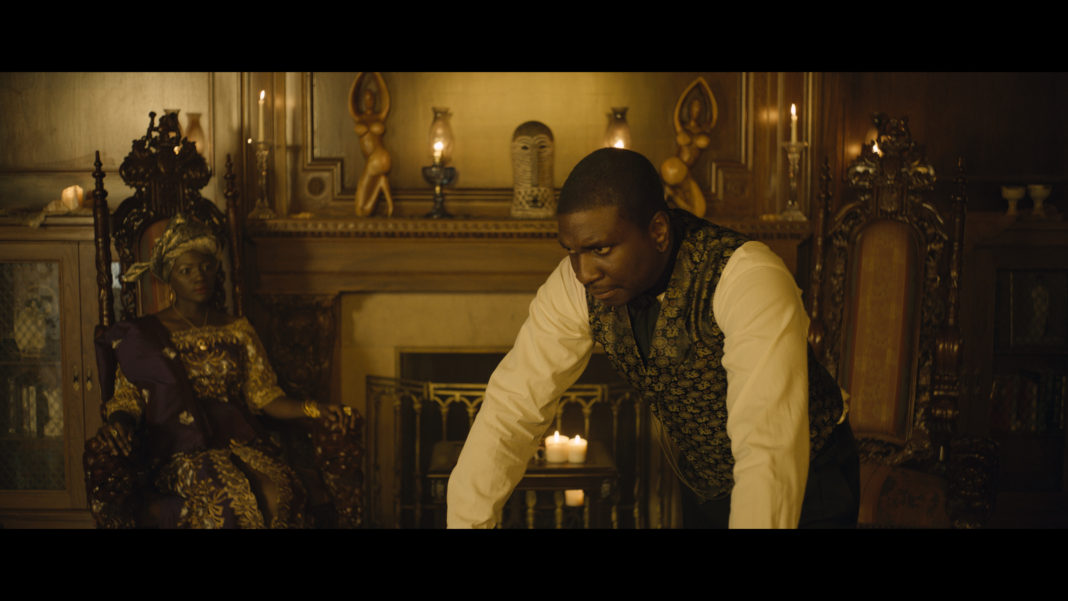Adetokumboh M’Cormack is a black actor and director who has managed to create a short film highlighting an alternate story that has rarely been told about the Great War Period (1914 – 18).
THE GERMAN KING focuses on Cameroon’s indirect relationship with Germany, at a time when there was heightened conflict and a desire to be truly independent from a nation that held its own desire to conquer all during a key moment in history.
Film and TV Now spoke with the talented individual about the film and his plans to expand it into a feature version of the short.
FTVN: This is a fascinating story and one that has rarely been told amidst all the other Anniversary works about the Great War recently. When did you first learn about the subject matter?
Adetokumboh M’Cormack: I found out about Rudolf Douala Manga Bell’s story only a few years ago. It was something I had never learned in school. His story is just one of the very many stories of strong, courageous African heroes many know nothing about. When I went to the movies as a child, the representation of Africa and the African culture was overwhelmingly negative. We were bombarded with the stereotypes of a war-torn continent, riddled with poverty and disease. There aren’t films that reflect how we see ourselves. There aren’t films that reflect our rich culture, our heroes, or our kings and queens. And there aren’t stories that show Africa’s role in World War 1.
A couple of years ago I read a quote by a Nigerian novelist, Chinua Achebe, which goes: “If you don’t like someone’s story, write your own.” So I did. I started doing research and came across incredible true African stories I never knew existed. Rudolf Douala Manga Bell’s story really spoke to me.

FTVN: The film also brings home the conflict between the Cameroon and German cultures and how the intensity of their beliefs was the key to the future of the war in this territory. Tell us a bit more about Cameroon’s own history in this period.
AM: Cameroon became a German colony during the scramble for Africa in the late 1800’s. Europe carved up Africa and was bleeding the continent of all its resources. Millions in Congo were being killed by Leopold. There was the genocide of the Nama and Herrero people perpetrated by Germans in what is now Namibia. Africans were put in concentration camps. Many were enslaved, killed and forcibly taken from their homes to make way for European settlers. Their land was ripped away from them. In Cameroon, King Rudolf Douala Manga Bell saw what his country and his people were facing and courageously led a rebellion against Kaiser Wilhelm II during World War One. His actions helped end German colonial rule in Cameroon.
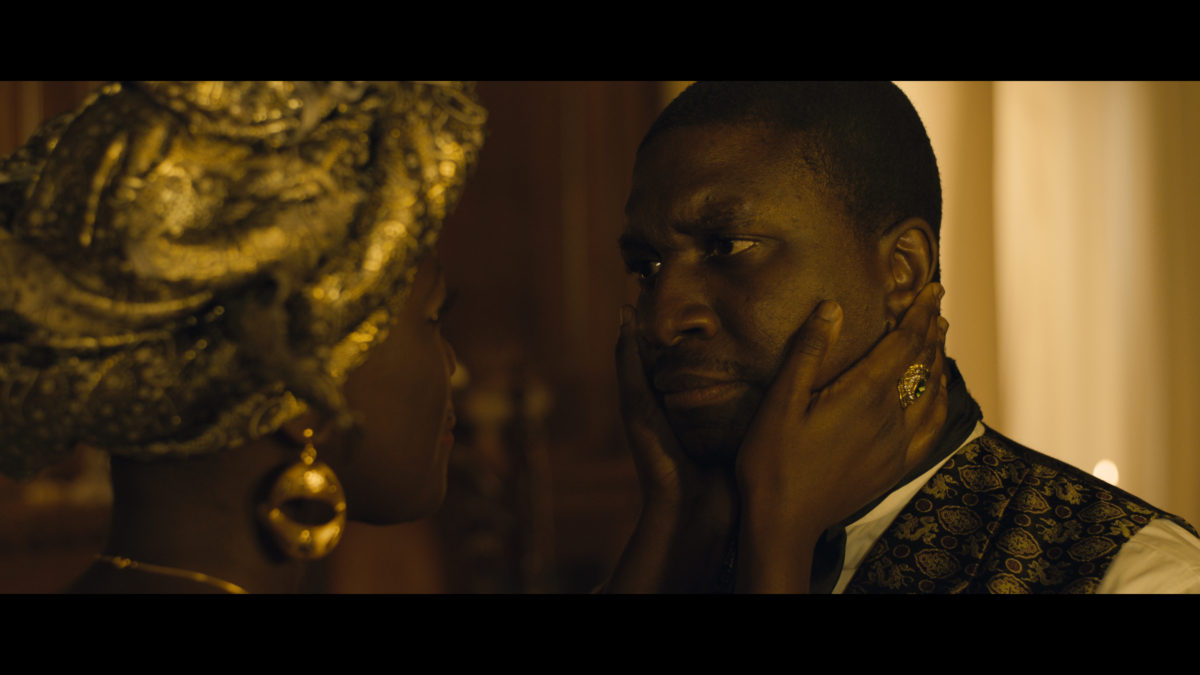
FTVN: You shot the film in Ohio. Tell us about the house you shot in.
AM: We shot the film at Laurel Court in Ohio. It was modelled after King Louis XVI and Marie Antoinette’s Petit Trianon palace in Versailles and was built in the early 1900s. It was incredible. Our production designer Stephonika W. Kaye did an incredible job making it resemble a German palace of that period. Laurel Court also doubled for Pagode De Douala which was King Rudolf’s palace in Cameroon. Luckily we had several photographs to use as references and we were able to recreate this magnificent African palace in Ohio.
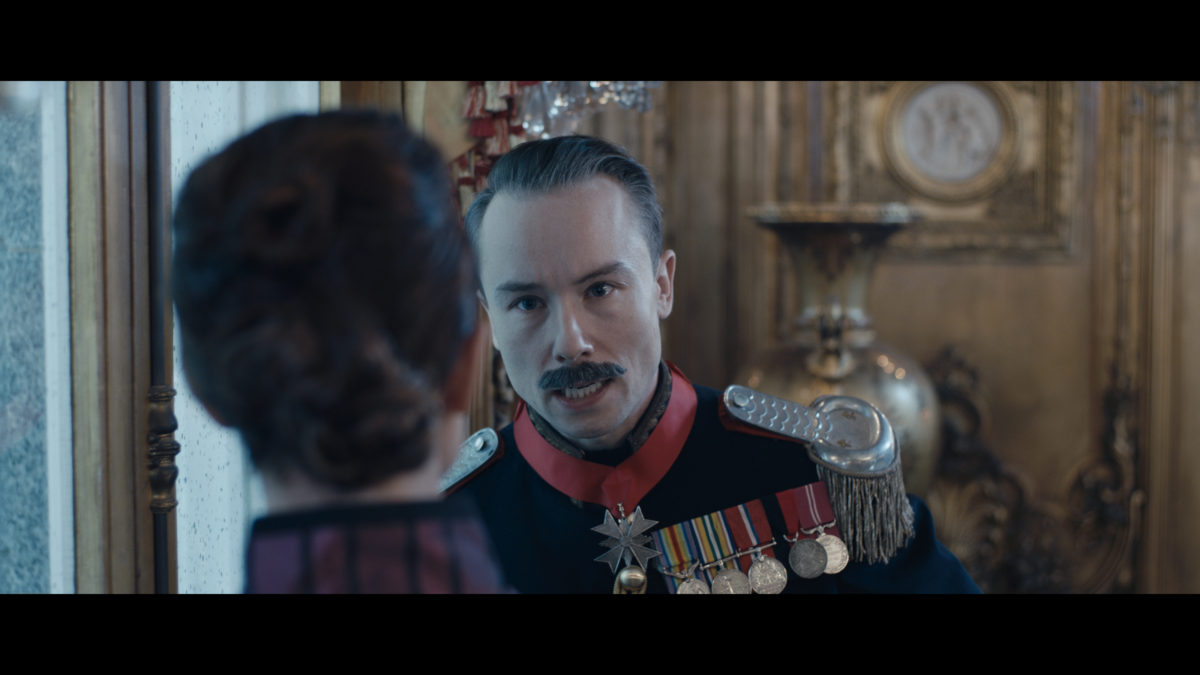
FTVN: Tell us about your cast and crew.
AM: My cast and crew are phenomenal! What’s amazing is that many of us have backgrounds similar to the characters and cultures we’re portraying. Most of our cast and crew have roots in both Cameroon and Germany.
Personally, I could relate to my character Rudolf on so many levels. I was born in Sierra Leone, but my parents were expats so I lived in many countries. Rudolf was born in Cameroon but raised in Germany. I understood his conflict as an African man who grew up in the West and the identity crisis one can feel as a result. And for the first time in my acting career, I could put all of those emotions into a character. It’s something that so many of us in the African diaspora can relate to.
One of the first people I cast was Markus Jorgensen after seeing him in a short film called Reich set in Germany in World War II. He played an extremely layered character who switches from someone the audience loves to someone you love to hate. Since he grew up in Austria, he speaks fluent German which was something that was required for his role as Otto Gleim.
I was a huge fan of Constance Ejuma after watching her in a short film called The Zim. I had also seen her in Ben and Ara which she acclaimed awards for. She’s honestly one of the greatest actresses of our generation and she also has Cameroonian roots so casting her as Queen Emily was a no brainer. When she said yes to playing the role and agreed to producing it, I was ecstatic. She’s brilliant in the film.
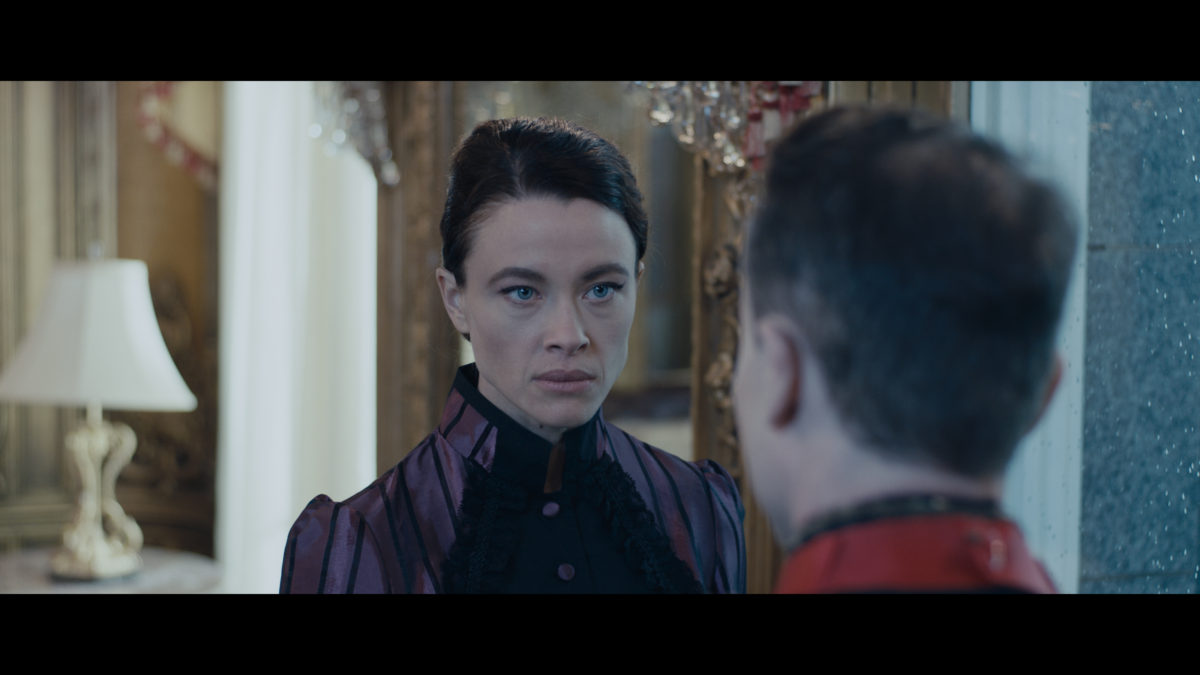
FTVN: It’s rare that a film taking place in the midst of war has no battle scenes or bloodshed. Did you ever plan to shoot any action scenes?
AM: I didn’t feel battle sequences were crucial to incorporate in the 20-minute time frame. What was more important to me was fleshing out the story, the characters and their relationships with one another and ultimately showing the climax and biggest decision of Rudolf Manga Bell’s life. I focused on showing the juxtaposition between the two kingdoms and the richness and beauty of the Cameroonian culture. I wanted to show Rudolf and Emily not only as a King and Queen but more importantly as parents who wanted to make Cameroon a better place for their children, which is something we can all relate to.
In the short, the real battle is the internal conflicts of Rudolf Douala Manga Bell and Kaiser Wilhelm II. Both men who are struggling to do what they believe is right. And of course there is the conflict they have with each other but it’s a conflict that they never confront, face-to-face. They are never in one scene together. The fencing fight with the rapiers between the two King’s sons – Prince Alexandre and Crown Prince Wilhelm at the beginning of the film, was my way of physicalizing the fight between the two kingdoms and a foreshadowing of things to come in a short span of time.
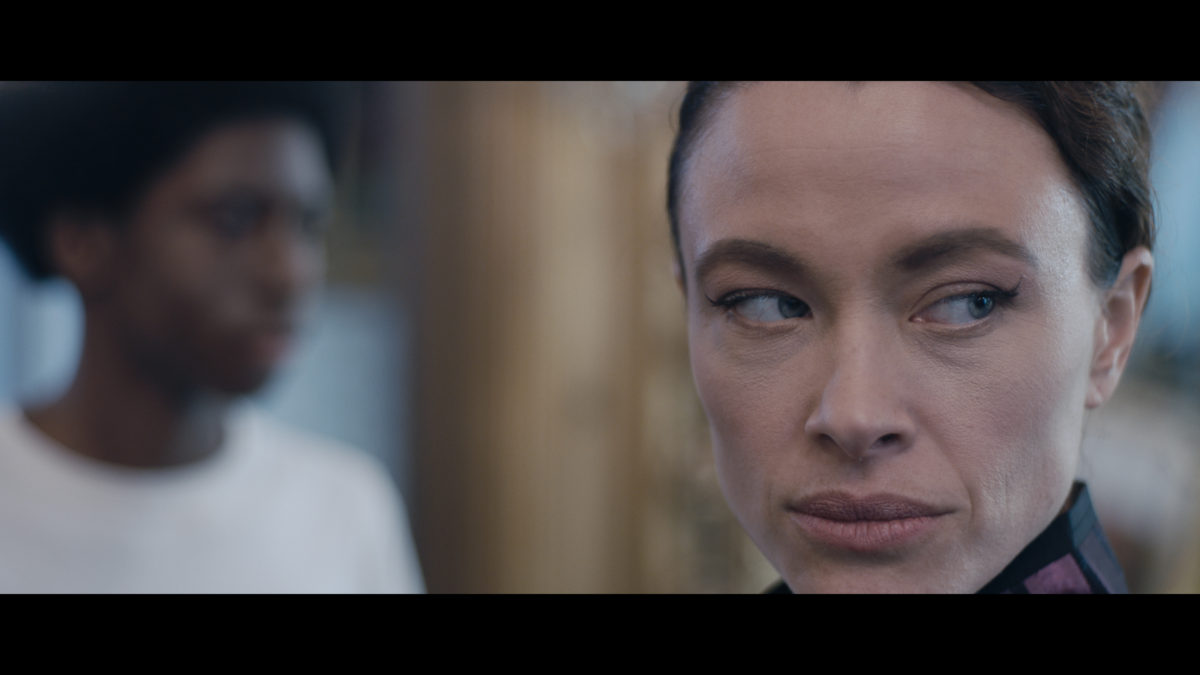
FTVN: This film has an epic quality about it for a short film. Are you planning to expand the story into a possible future feature, given there are a lot of key characters in the film that could also form a bigger story canvas?
AM: The feature will delve deeper into the friendship between the Kaiser and Rudolf. It will give the backstory of Rudolf’s German upbringing and show how World War I was really a battle between their family, both in the literal and metaphorical sense. Kaiser Wilhelm and George V were cousins. Rudolf considered Wilhelm his brother.
We will see more of the majesty of Cameroon and its people. We will focus on the other heroic Cameroonian figures like Martin Paul Samba and their involvement in bringing down German colonial rule. We will also get to show exactly how African soldiers were instrumental in beating Germany in World War I which is something we never see in film.
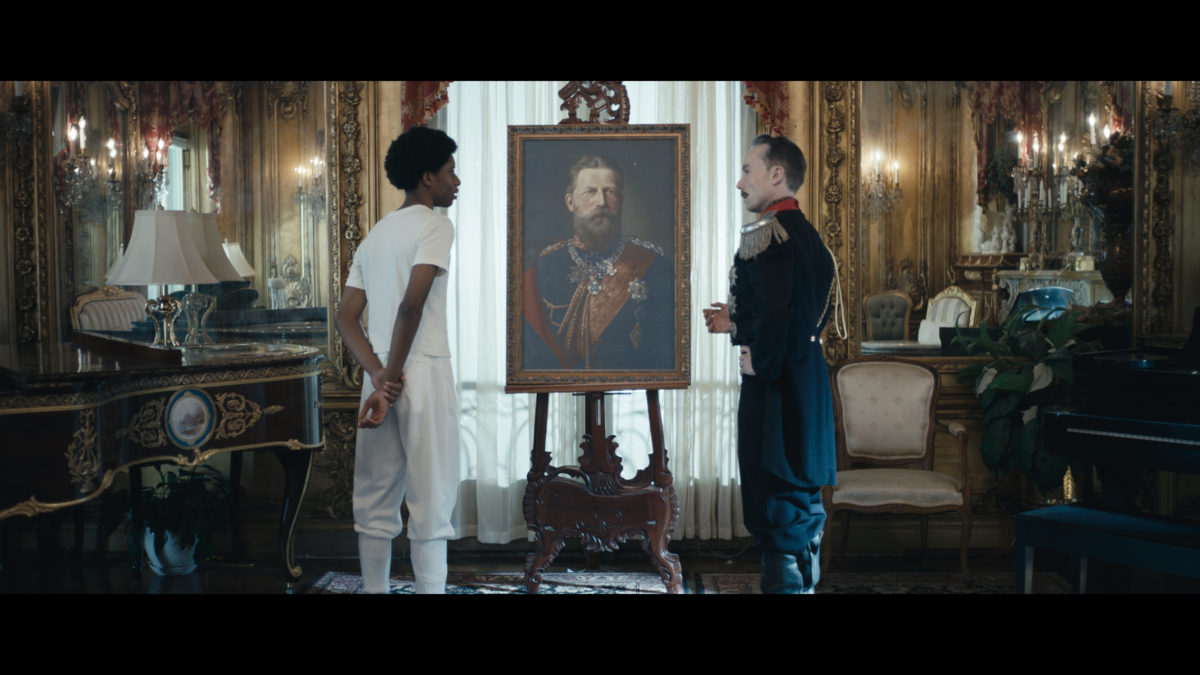
FTVN: Tell us about your cinematographer.
AM: Justin Janowitz and I have been friends for years but this is the first project we’ve had the chance to collaborate on. The style that he’s known for is creating bold and yet still, naturalistic images that fit the emotions of the project. There are some very dark scenes in the film, lit almost entirely by candlelight, which is extremely unique bold and difficult to accomplish well. As the director and also the star of the film I had complete faith that he’d create the proper mood with lighting, camera movement, and showcasing our talent in the best of light. I couldn’t be happier with the visuals in the film and how well we worked together on set. He’s incredibly skilled at the technical side of the craft, is an artist with light and camera, and is a fantastic collaborator. Once we discussed a scene or a sequence, I could walk away and handle the other elements of directing, knowing the visuals would come together as well as, and in fact better than I imagined.
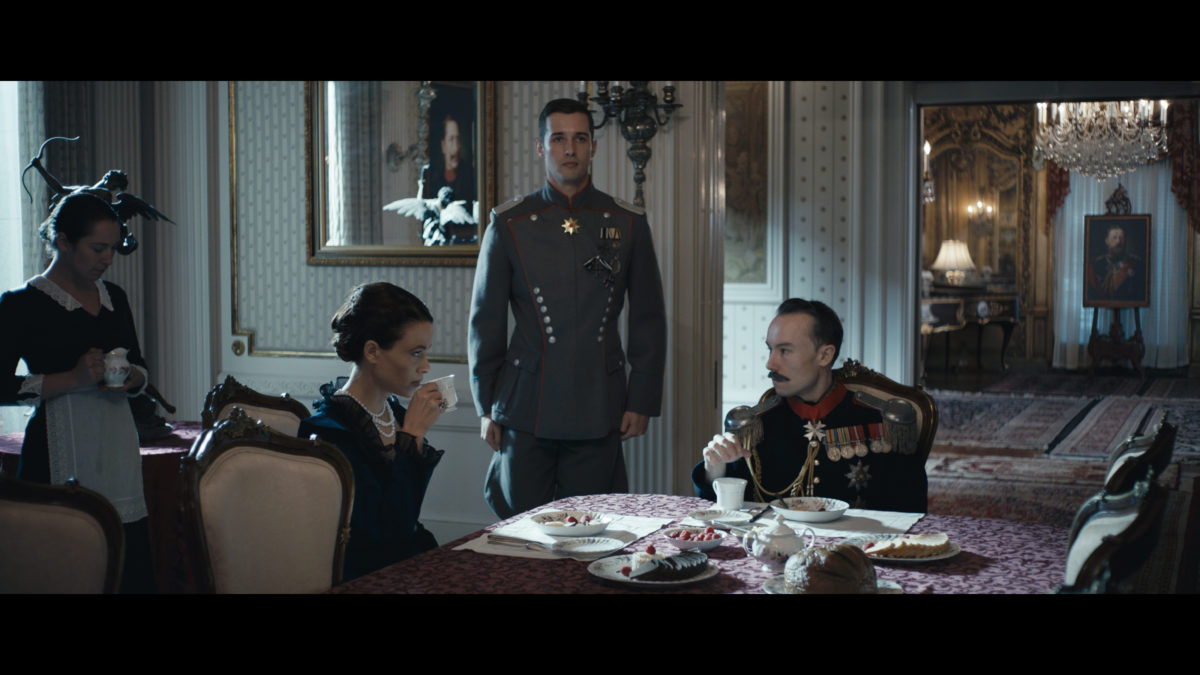
FTVN: Tell us about your composer.
AM: I worked with Theodore Ramirez on my last film Irish Goodbye and carried him onto this project. He knows my style extremely well and is great at understanding the right emotion in each scene to establish the right tone.
The closing credits song was actually sung by me! I called my friend Anthony Federov to help me produce an original song that would encapsulate the message of the film. Anthony was a finalist on American Idol and a huge human rights activist. Given the subject matter of the film, I knew he was the perfect person for the job. He enlisted the help of esteemed record producer Jeeve Ducornet and wrote the song “Tet’ekombo” (King of Kings). The song is sung in Douala and the lyrics are inspirational – speaking about taking pride in who you are and where you come from.
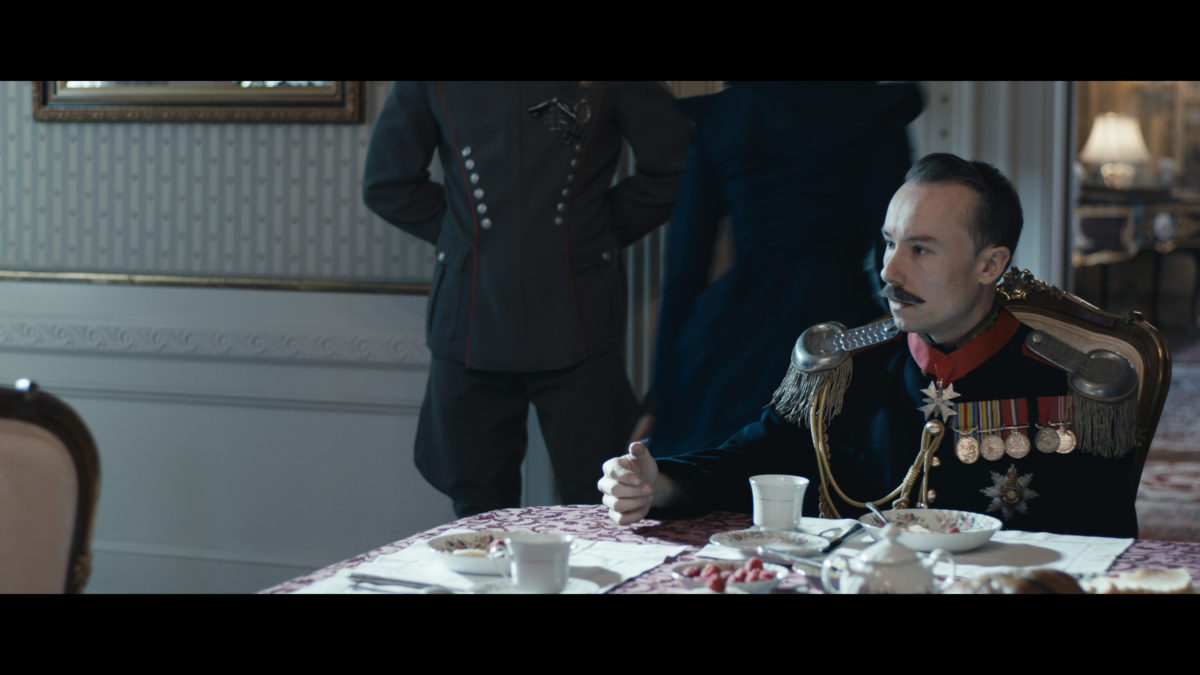
FTVN: You appeared in BLOOD DIAMOND alongside Leonardo DiCaprio. What was it like working on that film and your working relationship with the actor himself?
AM: Leo was amazing. I’ve never seen a harder working actor. Every take he commits 110 percent.
Blood Diamond was a tough one for me. I am from Sierra Leone originally so the film really hit home. I saw what the ten-year civil war did to my country and I knew people who had been killed. In order to prepare for my role, I spoke to many victims and their families. I spoke to former child soldiers. I heard many horror stories and wept with them as they recounted their experiences in the war. I was in a dark place for a long time after we wrapped. It’s a role that stuck with me.
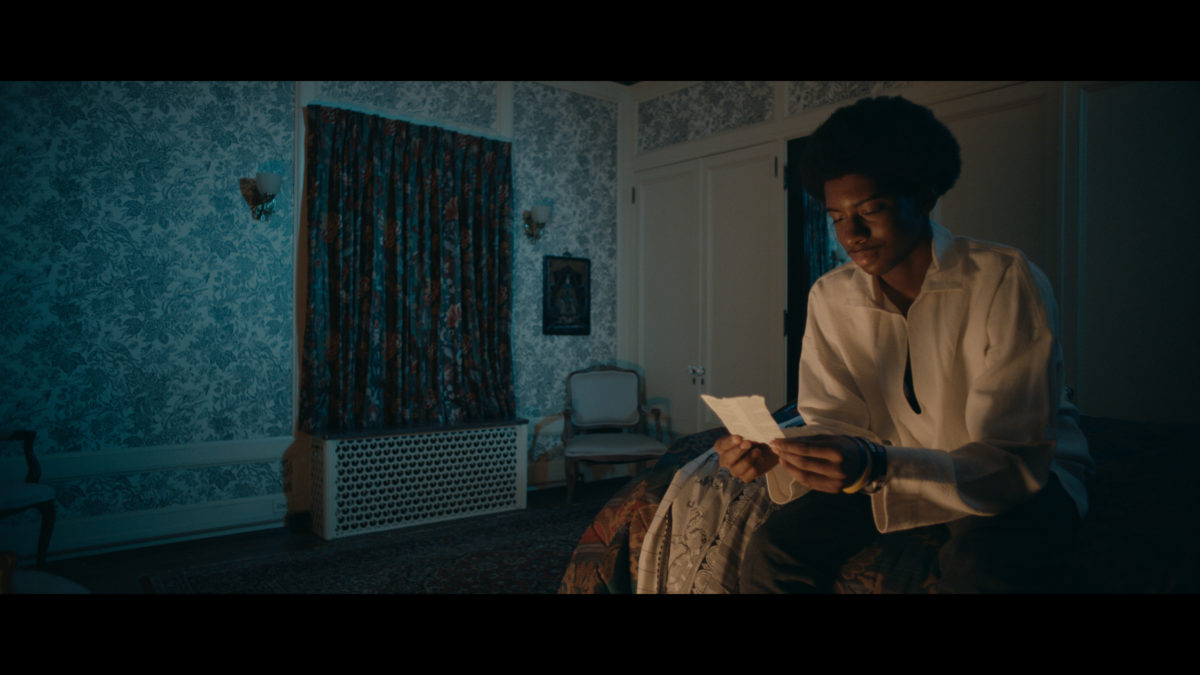
FTVN: THE GERMAN KING is generating considerable buzz on the Short Film Festival circuit. What has the experience been like for you as a multi-hyphenate film-maker?
AM: It’s a lot of work! (Laughs) As an actor, you tend to just focus on your role. You do your lines. You go back to your trailer. But as a writer, director, and producer you have to really see the big picture. You are overseeing the entire production which comes with a lot of responsibility!
I really enjoy seeing a project all the way through from inception to exhibition. I love having the freedom to tell stories I feel are important. I have greater respect and admiration for everyone who works on a film in front of and behind the camera. I love having conversations with my actors about their characters, and listening to and collaborating with my production designer, costumers my cinematographer and editor. It’s amazing to see how hard everyone works to make something that started off as words on a page, come to fruition.
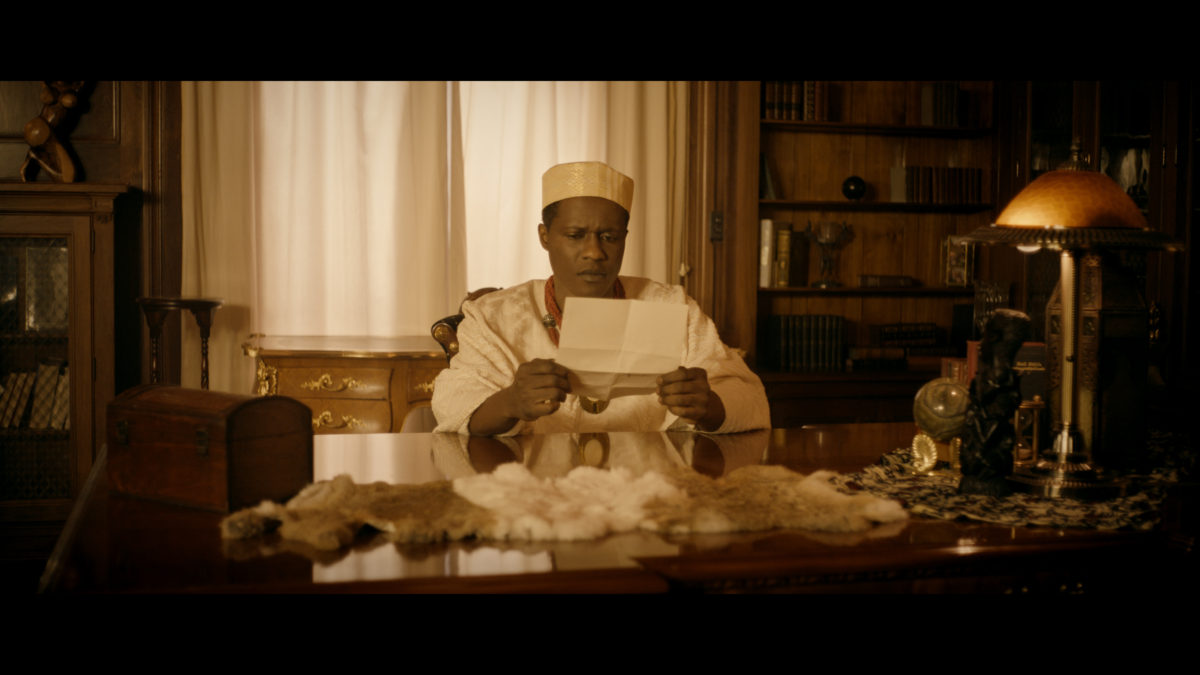
FTVN: Finally, what is your next project?
AM: In addition to the feature-length version of The German King, I am also in pre-production on a superhero story centered around a young African American girl tied in with traditional African folklore. I also have a couple of other feature films in various stages of development that focus on the true stories of courageous leaders. I am committed to telling powerful stories that matter, ones that people must know, but unfortunately, have been forgotten.


